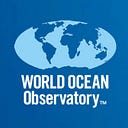Healing with Fish: The Answer for Chronic Skin Wounds?
“…what we have here is a turning of the circle of knowledge, the re-discovery and re-application of the healing property of fish oil, harvested as a value-added product, enabling new employment for fishing communities, and providing innovative, powerful treatment for injuries and conditions that can be better and faster healed by a natural process derived from the healing ocean.”
Time and again in history we hear of natural treatments for breaks, wounds, and diseases. Our ancestors brewed herbal teas, treated wounds with moss and leaves, and otherwise practiced a healing system derived from natural materials at hand. The tradition continues in the varying practices of homeopathic medicine in both East and West, and the global industry of organic supplements that offers an alternative to the synthetic and expensive methodology that characterizes the health care system in the U.S. and elsewhere. As medicine has become standardized and mechanized and arbitrated by the insurance and pharmaceutical industries, we have lost some of that historical wisdom and its healing effect.
We speak often at World Ocean Observatory of the innovative and effective innovations and organizations in Iceland, a small country with a big heart, big ideas, and a powerful natural environment that provides not only its energy and food requirements, but also a basis for adaptation and invention of natural products and processes to drive its 21st century economy and culture.
As Iceland relies heavily on fishing in its mix of finance and labor applications, it must stay competitive against larger, industrialized fishing nations by maximizing the value of its fish products, using 100% of the fish. This seems obvious, but in the U.S. for example, our industry wastes more than half of discarding by-catch, harvesting only specialized high-cost species, and failing to capture the added economic opportunity of such limited application and interest.
In a June 2017 article in Bloomberg BusinessWeek, Lois Parshley reports on the emergence of a remarkable iteration of this approach — the development of a fish skin based, FDA approved treatment for chronic wounds and inflammation. 100% of the fish indeed. The only hint of its origin is a scale-like grid that provides a binding matrix around which new, healthy skin can grow.
I had seen this product in Reykjavik, but if was not yet approved by the U.S. Food and Drug Administration until late last year. Called Omega 3 Wound, the product is produced by Kerecis Ltd, a small company located in Ísafjörður, Iceland, a town of 3,000 inhabitants with a limited economy based of fishing and small scale tourism. Kerecis Ltd. is a new employer at work in Ísafjörður. According to Fertram Sigurjónsson, CEO of Kerecis Ltd, the product has taken nine years to develop and test successfully, using the skin of locally caught cod fish that are cleaned, dried, sterilized, and packaged locally for treatment of chronic wounds, burns, oral cancer, internal, cosmetic and reconstructive surgeries, and other applications for the reduction of inflammation and pain.
The market implication is large. According to Parshley’s article, “Some six and a half million Americans suffer from chronic wounds, whether related to vascular disease, diabetes, or complications from normal procedures. The five-year survival rate is 54%,…and treatments cost more than $25 billion a year.”
Parshley continues, “The U.S. Department of Defense is on the lookout for better burn treatments because of the increase in service wounds from IEDs (improvised explosive devices.) In a study conducted by the U.S. Army Institute of Surgical Research, the fish skin bested the healing rates of cadaver skin, a common military treatment for burns. The Army has also funded several further studies, showing that unlike rival products, fish skin can ward off bacteria and reduce bleeding.”
So what we have here is a turning of the circle of knowledge, the re-discovery and re-application of the healing property of fish oil, re-branded Omega 3, harvested as a value-added product from a traditional food product, enabling new employment for fishing communities and providing innovative, more powerful treatment for the injuries of modern war and of many other conditions that can be better and faster healed by a natural process derived from the ocean.
That is the true message here — that the ocean has such an enormous, known and unknown, implication for human health. When we fail to use it well, or worse, when we despoil or exhaust it, we are depriving ourselves and our children from its healing properties — in a simple bandage, a new medicine, or the purity of the food we eat, the water we drink, and the air we breathe.
The sea connects all things.
About Kerecis Ltd:
Kerecis Ltd. is the fastest growing start-up out of Iceland and is a founding member of the Iceland Ocean Cluster. The Iceland Ocean Cluster promotes the Icelandic marine biotechnology industry, uniting companies and assisting them in approaching U.S. markets and finding investors. The mission of the Iceland Ocean Cluster is to create value and discover new opportunities by connecting entrepreneurs, businesses and knowledge in the marine industries. Kerecis Ltd. is one of the most innovative marine biotech companies in the world.
Healing with Fish first appeared as a 5-minute audio episode on World Ocean Radio. Host Peter Neill is founder and director of the World Ocean Observatory, a web-based place of exchange for information and educational services about the health of the world ocean.
